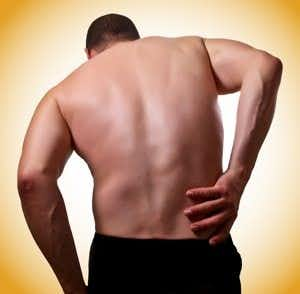
Anyone who has ever experienced kidney stones knows that this is something to avoid. Some people have described the pain as an 11 on a scale of 1 to 10. “Worse than childbirth” is the way one woman characterized the experience. Others use words like agonizing, excruciating or unbearable to describe the pain.
Sadly, once you have passed a stone, your chances of having more kidney stones increase dramatically. Lest you think this is a rare condition, the estimate is that 1 out of every 10 Americans will go through this torture at least once in a lifetime.
Acid Suppressing Drugs and Kidney Stones:
For reasons that remain somewhat mysterious, the incidence of kidney stones is on the rise. One possible contributor: a new study reported at the Kidney Week meetings in Chicago (Nov. 15-20, 2016) linked heartburn medicine to kidney stones.
Researchers analyzed data from over 180,000 health professionals. They were able to follow people who took proton pump inhibitors (PPIs like esomeprazole, lansoprazole and omeprazole) for over a decade. They also tracked people who took H2 antagonists such as cimetidine, famotidine and ranitidine for more than two decades.
The investigators adjusted the data for lots of potentially confounding factors like exercise, weight, age, smoking history and dietary supplements. They discovered that use of these acid-suppressing medications for reflux or indigestion was associated with an increased risk of 12 to 13 percent. This is a relatively small increased risk, but so many millions of people are taking PPIs and H2 antagonists that even a slight elevation in kidney stone formation would impact thousands of people.
One possible explanation for the PPI effect was reduced excretion of oxalate, citrate, calcium and magnesium. These are common components of kidney stones.
Symptoms of Kidney Stones:
Doctors have a name for this condition. It is a tongue twister: nephrolithiasis.
Symptoms that you could be suffering from a kidney stone include:
- Flank pain. The pain is often on your side or lower back and does not disappear, though it may go from more intense to less intense and back again.
- Pink or red urine not caused by eating beets
- Elevated temperature and/or chills
- A burning sensation when you pee
- Cloudy urine or urine that smells nasty
- Nausea or vomiting
Such symptoms require immediate medical attention. Chances are good that your doctor will order an imaging test to identify where the stone is located. Depending upon location, size and symptom severity your doctor will determine if treatment is necessary or whether you are likely to pass the stone without intervention.
What Causes Kidney Stones?
The causes of kidney stones are more complicated and confusing than you might imagine. When there is too much calcium in the urine (hypercalciuria) the risk goes up. This can be caused in part by heredity. Some families are more susceptible to this than others. Where you live seems to influence your risk. The south is considered the “stone belt” because people living in the southern region of the United States are more prone to stones than people living in other areas.
Dehydration is a big problem. When people do not drink enough water their urine can become overly concentrated allowing for high levels of uric acid to build up. Other medications that may contribute include the diuretic furosemide, the anti-seizure drug topiramate and the antibiotic SMZ-TMP (sulfamethoxazole-trimethoprim, aka Bactrim or Septra). Calcium supplements may also be a causative factor.
Take Home Message:
Although the risk appears modest, we think that people taking proton pump inhibitors or H2 antagonists for acid reflux should be encouraged to drink lots of fluids. We don’t want anyone to have to go through the pain of passing a kidney stone because of a heartburn medicine.

